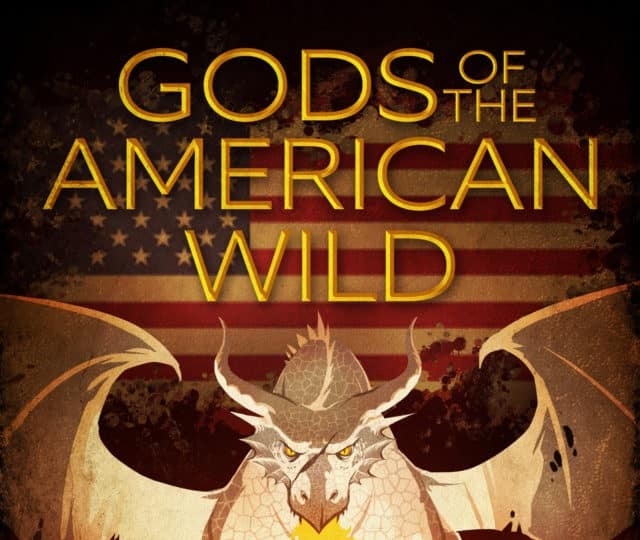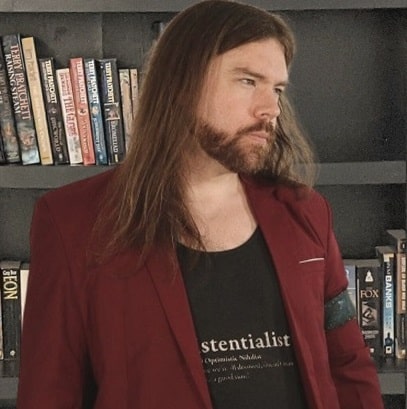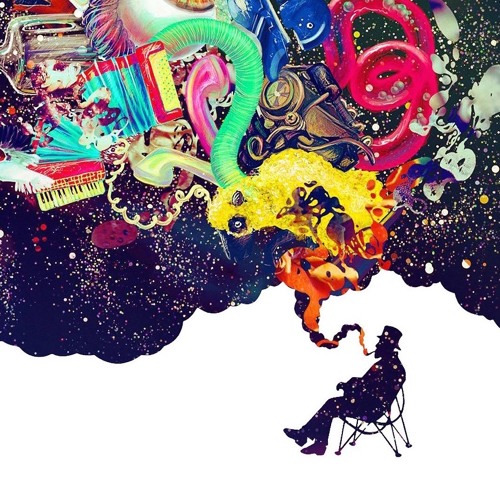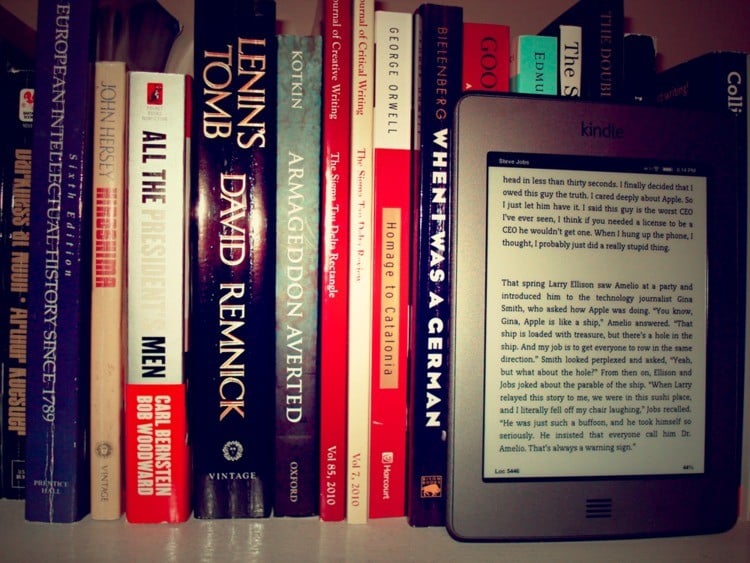Why I Wrote Gods of the American Wild
As you probably know if you follow me on Twitter, I wrote a book called Gods of the American Wild. I wanted to talk a little bit about why I wrote it.
Overabundance of Human Conflict
There is so much quick judgment these days, so much labeling, so much otherizing and easy vilification of groups based on tribal lines. I wanted to write a story that was quite centrally about understanding. A story that showed the value of looking a little more deeply into who people are beyond the worst of their actions or their most immediate impression. To me this is the most visible and destructive problem facing society today, and it’s close to my heart. There’s probably some psychological reason for it — my parents’ divorce, the sad final end points of isolated and angry young men that manifest as school shootings, political discord. It’s all very sad. I wanted to make a contribution, as minor as it may be, to solving this problem. I think it is a cultural problem, and only through cultural participation is there a solution to be found — not government, or politics, or technology, these mechanisms of power that created this environment, but through a thoughtful, deep, long-form work that is the antithesis of a shallow and destructive popular culture.
The Tower of Babel
At the forefront of my mind was this idea that the Tower of Babel doomsday scenario is the most readily impending possibility for human extinction and no one is talking about it. If you’re not aware, the Tower of Babel is a myth where human technology became so advanced that they endeavored to build a tower to the gods. In other words, they wanted to ascend to godhood. As punishment for their hubris, God cursed them with foreign language and misunderstanding, so that they would be unable to cooperate and work toward shared goals.
We talk a lot about climate change, nuclear war, poverty or gun violence. But our inability to solve any of those issues, or even agree that they are issues, stems from a complete lack of ability to communicate. More than that, social media has increased people’s ability to communicate worldwide, but misunderstanding and division has exploded. From my perspective, we’re in the midst of this parable.
Here’s an excerpt from the book:
“All this technology, this advancement, people think they’re gonna become gods. But globalization is progressing faster than people have the ability to learn to integrate with the other cultures in the world. All this money goes to math and science, but run into a dude who only speaks Tagalog who wants to slit your throat and it won’t matter how many apps you produce. Everyone has the ability to make things nowadays, but not a lot of people are sitting around thinking about what to make, or why to make,” said Rhys.
“Besides. Gods aren’t real. Gods are made by humans. They’re moral stories, meant to teach lessons to kids. In every culture in the world, that’s the purpose of gods. They only make them powerful so the kids look up to them, or, in some cases, fear them,” Rhys said.
Humans Ascending to Godhood
One of the central themes of the novel is the exploration of how the concerns of people change as they gain power. I was inspired by three different things when I chose to make that the central exploration of the book. First, the Tower of Babel myth — the folly of trying to ascend to Godhood. Second, ascension to Godhood as it related to mythology — Guan Yu, in Chinese mythology, ascended to Godhood, Siddhartha became the Buddha, and what separates heroes and villains in American superhero stories. Lastly, I was inspired by the line in Watchmen where Dr. Manhattan says “The world’s smartest man is no more of a threat to me than is its smallest termite.” I kept going back to that quote in my mind while I was writing, and the question it really brings up — if a human becomes a god, does that human still care about humans?
I explored this through writing a variety of characters who are at different points on a path to becoming gods and juxtaposing them. For example, one character, whose power has expanded immensely and whose life before becoming powerful was traumatic, he views them as an exploitable resource. At a certain point during the novel, during a moment of philosophical debate, he says “You want to help them? Do you inject yourself into the politics of bees? No, you take their honey.” Meanwhile, there’s another character who views the world as entirely driven by moment to moment human interactions and has almost completely disregarded his power, a destructive thing, in order to harness the power of creating positive experiences with others.
The Virtues of Good Men vs. the Virtues of the Dragon
To me, I decided, what makes a God, in terms of mythology, is not superpowers. It’s heroic virtue. Superpowers exist to invoke the sense that you will want to emulate their behavior. A God without heroic virtue is a demon, just as a king without heroic virtue is a tyrant. This is explored in a number of ways in the novel. The final chapter is called “Path of the Gods,” and it sort of lays out the underlying allegory for the reader. I’ll spell it out for you here a little bit: in Gods of the American Wild, there are heroes, each of whom are selected to represent a singular virtue. Action aside, because, between you and me, the “dragon” in the title has a double meaning, the enemy they fight is a literal dragon, but the enemy they fight metaphorically throughout the book is a metaphorical dragon. The virtues of the dragon being: greed, hoarding, selfishness, barbarity, rage, predatory nature, isolation, etc. These are also, coincidentally, the ‘virtues’ of a modern American society.
I explored this conflict in what I hope is a thoughtful way in the book, and made it central to every character’s arc. Each of the heroes, whether they represent “understanding” or “curiosity” or “sacrifice” faces off against a corresponding corruptible trait from the pool of virtues represented by the dragon. The council, one of the core antagonists of the novel, is a group of people who have gained godlike power through Earthly means (technological, financial, media, ecclesiastic, etc) who, each in their own way, have all succumbed to the virtues of the dragon.
I wanted to create an IP
I wanted to create a novel that takes place in a world I can expand. Right now I’m writing the follow-up, which is a bit of a shorter book and a compilation of short stories, the purpose being to expand the world of the novel. I wanted to create a fantasy world of modern America with a touch of sci-fi that incorporates some of the tropes of superheroes with Western folklore, conspiracy theories, and some fantasy tropes like dragons and demons. One of my inspirations was the TV shows “Heroes” and “Misfits”. I wanted to create a similar kind of world but less embracing of the kitsch. I’d love to see American Wild expand beyond literature and into comics, video games and movies, and I think it’s well structured to accomplish that, quite intentionally.
I think the very best of the best in terms of artwork are the things that entertain mainstream sensibilities but that have an underbelly of depth, beauty and thoughtfulness that gives the erudite audience something to chew, so you can approach them ‘at your level’ and enjoy. Things like Robert Frost, Slaughterhouse Five, American Psycho and Childish Gambino’s “This is America” accomplish this, and that’s what I strive for.
I wanted to make art
I grew up absorbing every piece of media I could get my hands on. I read, prolifically, everything from Ender’s Game to Fight Club to Crime and Punishment to The Sun Also Rises. I played so many video games there was probably a time when I could have conceived of being a world expert on the medium. I read mythology from around the world with great interest, and listened to music from Wagner to Jethro Tull to Wes Montgomery to NWA. I watched films like The Cabinet of Dr. Caligari, Chinatown, The Godfather, Day of the Locust, and everything else. And creating this website is sort of a way of scratching that itch of interest and consumption. But I also created, thoughout all of this time. In high school I was an accomplished musician — I still remember playing Led Zeppelin’s “Ramble On” to get into advanced jazz band in high school. I never blossomed as a singer, but I still recorded 3 full length albums. When I was in college for literature I wrote at least two thousand collective pages worth of short stories, novellas, unfinished novels, screenplays and poems. I even spent some time as an independent game developer, receiving an MFA in game development from one of the most prestigious schools in the country.
And so, I found myself, at a time in my life, where I worked in an office. I wasn’t consuming or critiquing art. I wasn’t creating anything. I turned 30 and I realized that… I am supposed to be laying my hands on the unformed clay of society’s culture, and I am wasting my time doing anything else. So I created this site. And I wrote this book. And it’s just the start — my hope is to wake up one day when I turn 50, and not feel like I wasted another 20 years being sidetracked by things that are not within the scope of my purpose. I’d rather be unsuccessful and reach just a few people aiming toward destiny than continue to be a moderately successful, but ultimately hollow and unfulfilled corporate cog. Of course, if I become a millionaire, that’d be just fine.
For a first novel, I really do think it’s a great book. I have criticisms of it, but I’m truly happy with the layers of depth that are there, for those who look. Thanks for reading this article.





